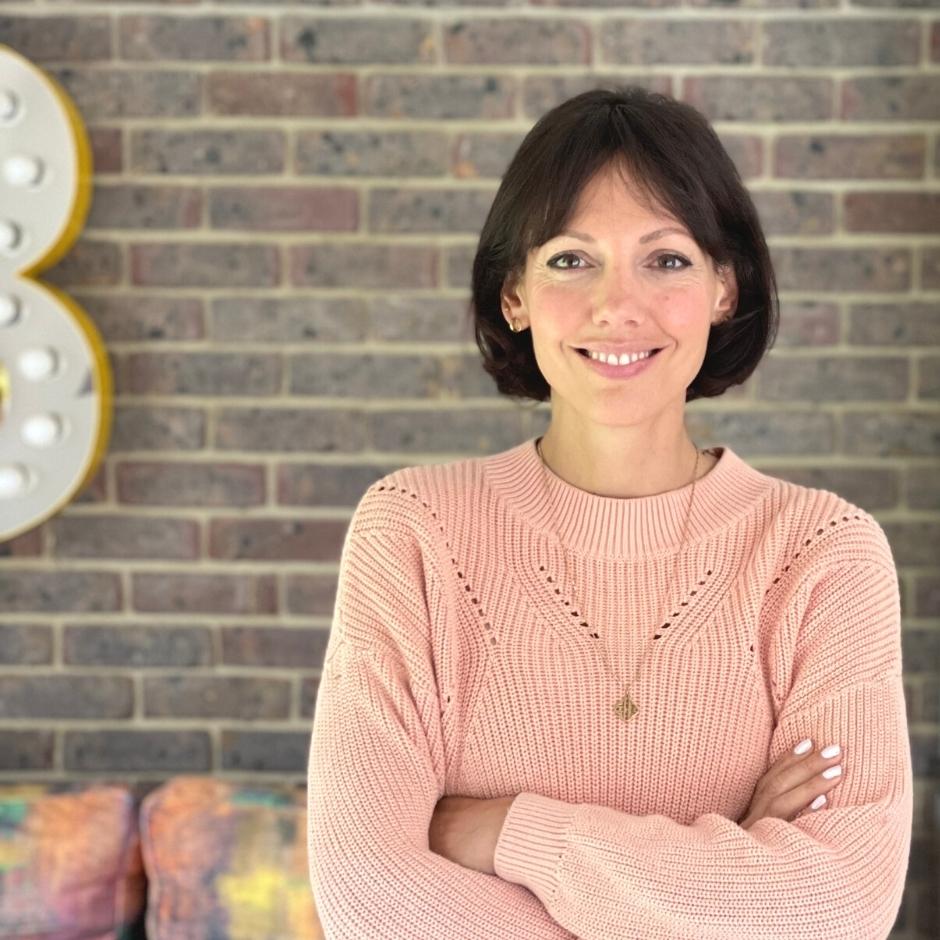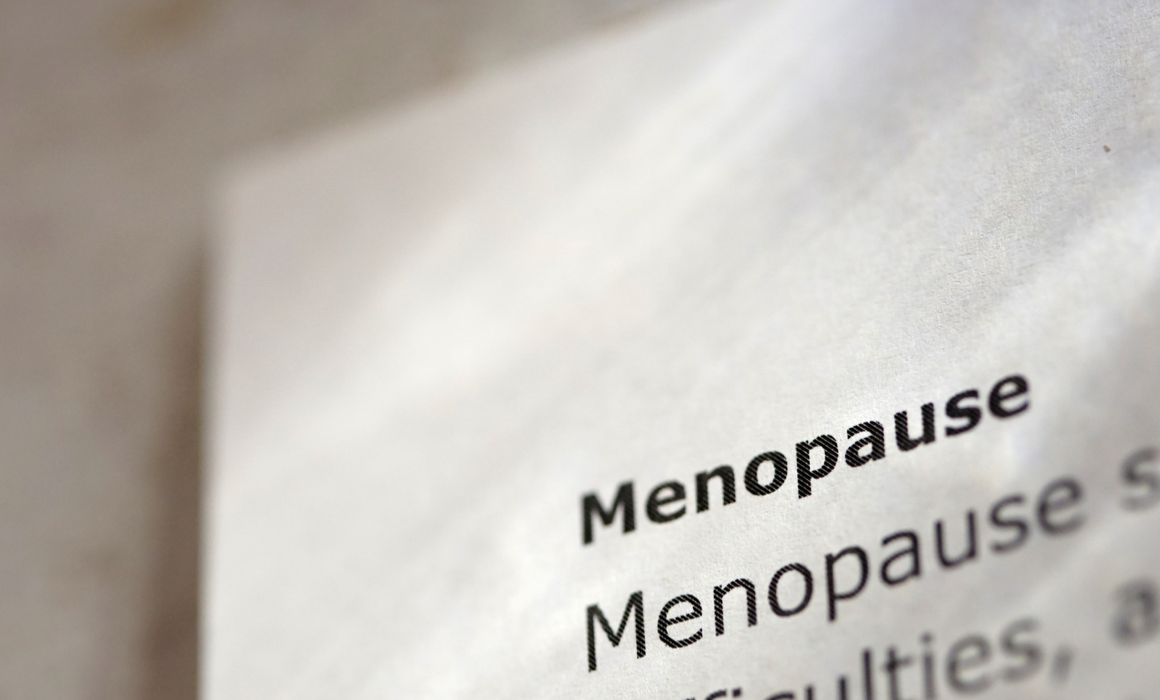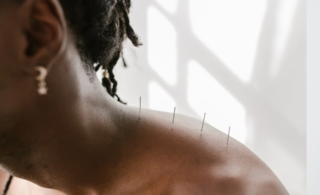
Going through the menopause as a result of breast cancer treatment can be overwhelming and difficult. This article shares what helped one woman navigate some of the trickier moments of post-treatment menopause together with her top tips for someone going through it.
By Dani Binnington
The menopause conversation is really shifting – we’re all talking about it a lot more and most of us have a much better understanding of what is means for women. But there’s something that isn’t so widely discussed – and that’s menopause after cancer.
It’s a totally different ballgame and people in the cancer community often feel excluded from the wider menopause conversation. That can leave women feeling even more isolated, confused and scared at what is already a deeply challenging time. Doctors will often tell you HRT isn’t an option, depending on the kind of cancer you had, so you’re left on your own, dealing with a double-whammy of menopause symptoms and the trauma, loneliness, loss of fertility in some cases and anxiety that can follow cancer treatment.
Menopause after cancer really is the hidden menopause.
Dani’s story
I was diagnosed with breast cancer nine years ago at the age of 33. Today, I am a patients advocate for women in menopause after cancer. I want to share from my personal and professional experience so that others can have a more positive experience themselves.
Too many women say they feel they have little to zero support. I hear so many people saying menopause after cancer feels isolating and that they don’t know where to start, or what to do next.
However, by methodically looking at everything we can do – from medical to complementary treatments, to lifestyle changes and community – I do believe that we can make this menopause post-cancer malarkey a more positive one.
Here are some key reasons menopause after cancer is so different:
- You have sudden and severe menopause symptoms
Going through menopause due to cancer treatment often means it happens very suddenly and symptoms can be more severe. Us cancer survivors don’t get the gradual hormone changes – it’s more that our bodies have quit hormones cold turkey, plunging us into menopause suddenly and intensely. And it can be very scary sitting at home on your own after cancer treatment’s finished, wondering whether these symptoms are down to menopause, side effects of treatment or even cancer itself. On top of all that, menopausal hormone changes can often trigger low mood and anxiety – which can make everything that much harder to cope with when you’re already feeling low after everything you’ve been through.
- You may have to cope with fertility loss
If you’re under 45 and still having periods, cancer treatment can bring on an early menopause – so you end up going through it long before 51, the average age a woman’s periods stop. This leaves you having to cope with the premature loss of your fertility after gruelling cancer treatment, which can be especially painful if you wanted children and haven’t had them. Even if you don’t want children or you’ve completed your family, losing your fertility early can still be very confronting.
- You have to come off your HRT
Perhaps you’d already been through menopause and were coasting along quite happily on HRT. But then you got the cancer diagnosis and had to stop it abruptly, so you’re suddenly dealing with symptoms you were managing well before.
- You don’t know who to ask for what help
Women often put up with menopause symptoms after cancer. Lots of us tell ourselves we shouldn’t complain – we’ve survived a life-threatening illness so low libido, hot flushes and insomnia aren’t the end of the world. We’re lucky to be alive – we shouldn’t be moaning. Even if you want to seek help, who do you speak to? It can be difficult to navigate the health system and know whether you should be talking to your oncologist, nurse or GP. And you may well think there’s no point anyway – you can’t have HRT and nothing can be done so you’ll just have to put up with it.
I want to help change this.
Here’s my 5-point manifesto for menopause after cancer.
- Talk about it
Let’s start opening up about it so we all realise we’re not alone. That in itself can be a game-changer. Listen to The Menopause And Cancer Podcast to get the conversation going. For apple listeners go here or for Android go to Spotify here.
- Persist with your healthcare team
Don’t be fobbed off. Managing menopause after a cancer diagnosis may be more challenging and require more bespoke care, but it’s absolutely possible to do something about your symptoms. If it bothers you, it should bother your doctor.
- Download a tracker
I love the free Balance app. It helps you track your menopause symptoms so you can get a clear idea of what’s going on. That can give you a sense of control but on a more practical basis, it can also help you talk to your doctor about your symptoms without having to look back and try to remember them. I recommend printing out your results to take to an appointment.
- Ask to see a specialist
As menopause care after cancer is usually more complex, you should be seen by a menopause specialist. Ask your healthcare team to refer you. Your GP or your cancer team can do so and did you know, you can see a menopause specialist on the NHS? Although there is a long wait, it is worth to get on that list. Click here to find one.
- Empower yourself
You’ve been through such a lot already. You – and your body – deserve nourishment and care. Try to think of managing menopause after cancer like a very “un-linear” journey. At times you might. Need to address a physical symptom, other times you might need to look after your emotional house. You might feel as if you make progress one week, and feel as if you’ve taken 10 steps back another week. That, to me, sums up navigating menopause after cancer. But remember, that wise and wonderful woman is wishing you: she just needs a little nourishing at times.
About the author

Dani Binnington is a patient advocate for women in menopause after cancer and founder of Healthy Whole Me www.healthywholeme.com.
Further information
Future Dreams hold a range of support groups, classes, workshops and events – including ones about menopause – to help you and your carers during your breast cancer diagnosis. These are held both online and in person at the London-based Future Dreams House. To see what’s on offer and to book your place, see here.
To return to the homepage of our Information Hub, click here where you can access more helpful information, practical advice, personal stories and more.
November 2022
The information and content provided in all guest articles is intended for information and educational purposes only and is not intended to substitute for professional medical advice. It is important that all personalised care decisions should be made by your medical team. Please contact your medical team for advice on anything covered in this article and/or in relation to your personal situation. Please note that unless otherwise stated, Future Dreams has no affiliation to the guest author of this article and he/she/they have not been paid to write this article. There may be alternative options/products/information available which we encourage you to research when making decisions about treatment and support. The content of this article was created by Dani Binnington and we accept no responsibility for the accuracy or otherwise of the contents of this article.
Share

Support awareness research
Donate to those touched by BREAST cancer
Sylvie and Danielle began Future Dreams with just £100 in 2008. They believed nobody should face breast cancer alone. Their legacy lives on in Future Dreams House. We couldn’t continue to fund support services for those touched by breast cancer, raise awareness of breast cancer and promote early diagnosis and advance research into secondary breast cancer without your help. Please consider partnering with us or making a donation.

